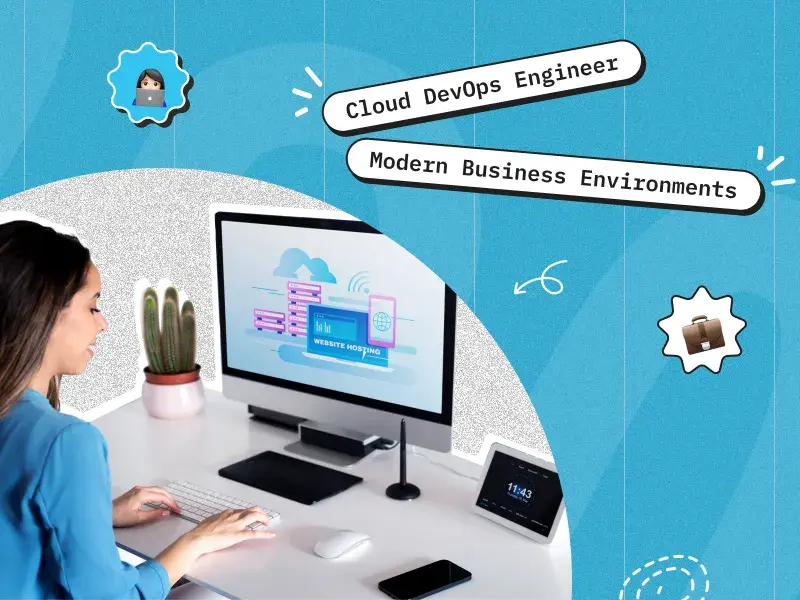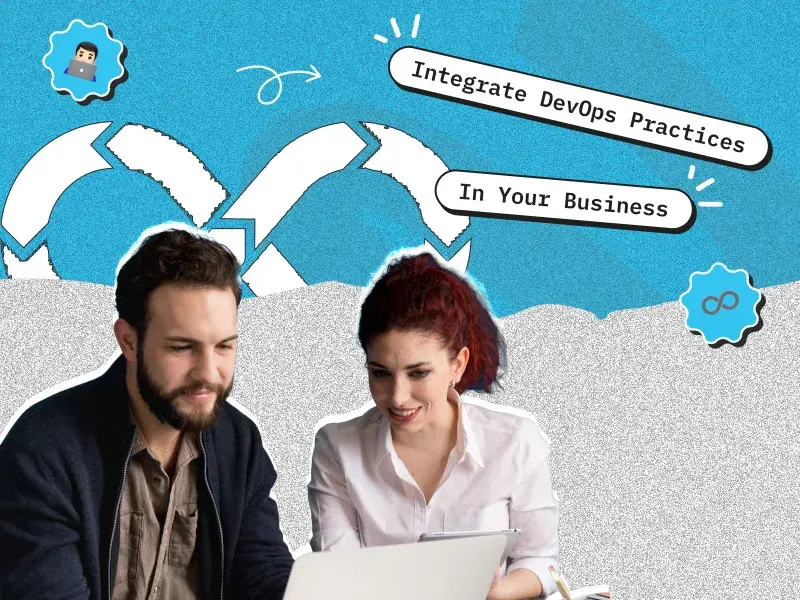Summary:
A Cloud DevOps Engineer is a key figure in modern IT operations, specializing in cloud technologies to streamline software development and deployment. They bridge the gap between development and operations teams, enhancing efficiency through practices like Infrastructure as Code (IaC), Continuous Integration and Continuous Deployment (CI/CD), cloud service integration, performance monitoring, and cost optimization. With DevOps being rapidly adopted across various industries, these professionals play a crucial role in improving operational agility, reducing costs, and driving business growth in dynamic cloud environments.
Introduction
The role of a Cloud DevOps Engineer stands at the forefront of innovation and efficiency in IT operations. As businesses increasingly adopt cloud computing to enhance agility and scalability, these specialized professionals play a pivotal role in orchestrating seamless integration between development and operations teams within cloud environments.
For startups looking to accelerate their growth through streamlined IT operations, understanding the pivotal role of DevOps is crucial. DevOps for startups can provide a significant competitive edge by fostering a culture of collaboration and efficiency from the outset.
Who is a Cloud DevOps Engineer?
A Cloud DevOps Engineer is an IT professional who specializes in using cloud computing technologies to streamline the software development and deployment process. They essentially bridge the gap between development teams and operations teams.
Read more: DevOps Engineer vs. Software Engineer: Understanding the difference
Adoption of DevOps by Different Industries
The IT and telecommunications sector is currently leading the DevOps adoption curve. Industries such as healthcare, manufacturing, banking, insurance, and finance are also rapidly embracing DevOps and cloud modernization to enhance software delivery efficiency and reduce maintenance costs.
According to a Polaris Market Research report, the IT and telecommunications industry has been a major driving force behind the DevOps market growth due to the escalating demand for swift service delivery. The global DevOps market was valued at USD 10.5 billion in 2023 and is expected to grow at a CAGR of 21.20% during the forecast period.
In Europe, banks incorporating DevOps into their software processes have improved efficiency by 25%, enabling IT operations teams to focus on adding value to business operations.
What is the role of a Cloud DevOps Engineer?
1. Infrastructure as Code (IaC) Implementation:
- Automation of Infrastructure: Implementing, and managing infrastructure using IaC tools like Terraform, AWS CloudFormation, or Azure Resource Manager templates.
- Scalability and Flexibility: Creating scalable and flexible infrastructure configurations that can adapt to changing business needs and growth.
2. Continuous Integration and Continuous Deployment (CI/CD):
- Pipeline Automation: Developing and maintaining CI/CD pipelines to automate applications and services’ build, test, and deployment processes.
- Speed and Efficiency: Ensuring rapid and reliable delivery of software updates and new features to production environments.
3. Collaboration and Communication:
- Cross-functional collaboration: Working closely with development, operations, and security teams to align on DevOps practices, troubleshoot issues, and drive continuous improvement.
- Stakeholder Engagement: Providing technical guidance and communicating project statuses, risks, and recommendations to stakeholders and management.
4. Cloud Service Integration and Optimization:
- Utilization of Cloud Services: Integrating and optimizing cloud-native services such as serverless computing (AWS Lambda, Azure Functions), managed databases (AWS RDS, Azure SQL Database), and storage solutions (AWS S3, Azure Blob Storage).
- Cost Optimization: Optimizing cloud resource usage to minimize costs while ensuring optimal performance and scalability.
5. Performance Monitoring and Optimization:
- Monitoring and Analytics: Implementing monitoring solutions to track the performance, availability, and health of cloud infrastructure and applications.
- Proactive Optimization: Analyzing performance metrics and identifying opportunities for optimization in terms of resource utilization, response times, and scalability.
6. Testing and Deployment:
- Test Automation: Integrating automated testing frameworks into the CI/CD pipeline to ensure code quality and reliability.
- Deployment Strategies: Implementing effective deployment strategies (e.g., blue-green, canary deployments) to minimize downtime and risks during software releases.
- Release Management: Coordinating and managing the release process, including change management, configuration management, and release documentation.
8. Continuous Learning and Innovation:
- Technology Evaluation: Staying abreast of industry trends, evaluating new technologies, and recommending the adoption of tools and services that enhance productivity, efficiency, and scalability.
- Certifications and Skills Development: Pursuing certifications (e.g., AWS Certified DevOps Engineer, Azure DevOps Engineer) and continuous skills development to maintain expertise in cloud technologies and practices.
Essential skills for a successful DevOps Engineer include proficiency in cloud platforms like AWS or Azure, expertise in automation tools such as Jenkins or Ansible, and strong scripting skills in languages like Python or Shell. Developing these skills is crucial for navigating the complexities of modern IT environments and driving organizational success.
Conclusion
Cloud DevOps Engineers empower organizations to accelerate software delivery, enhance operational efficiency, and maintain resilience in the face of dynamic business challenges. As cloud adoption continues to surge, the demand for skilled professionals capable of navigating and optimizing cloud environments will only grow, underscoring the pivotal role of Cloud DevOps Engineers in shaping the future of IT infrastructure and operations. For businesses looking to streamline their operations and leverage cloud technology effectively, hire devops engineer is crucial for achieving sustainable growth and success.











 30 mins free Consulting
30 mins free Consulting 
 5 min read
5 min read 






 Love we get from the world
Love we get from the world 